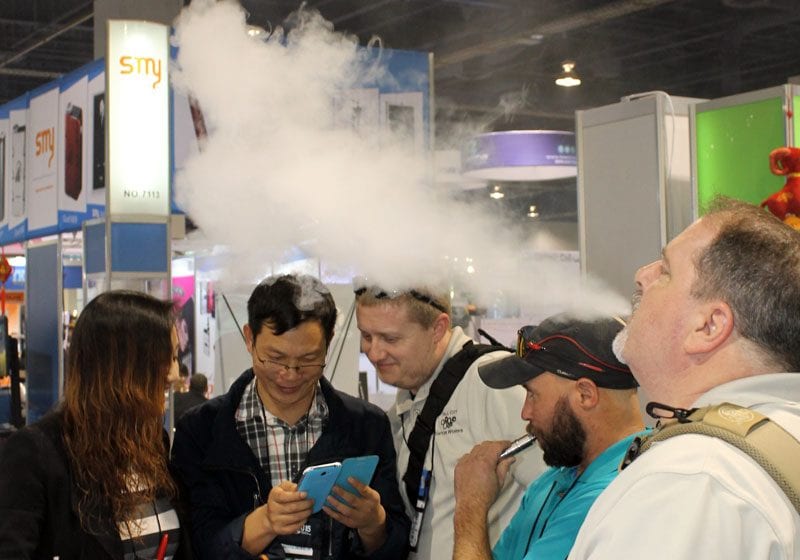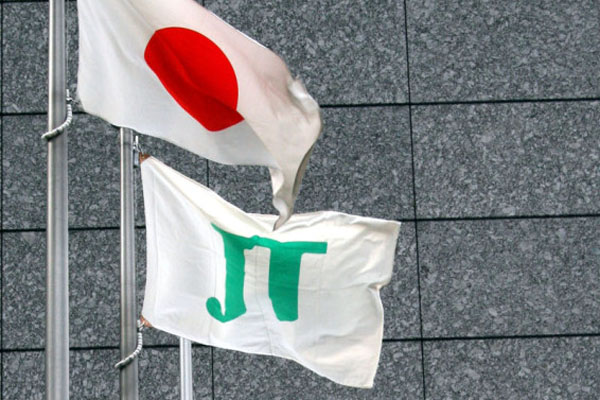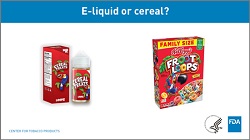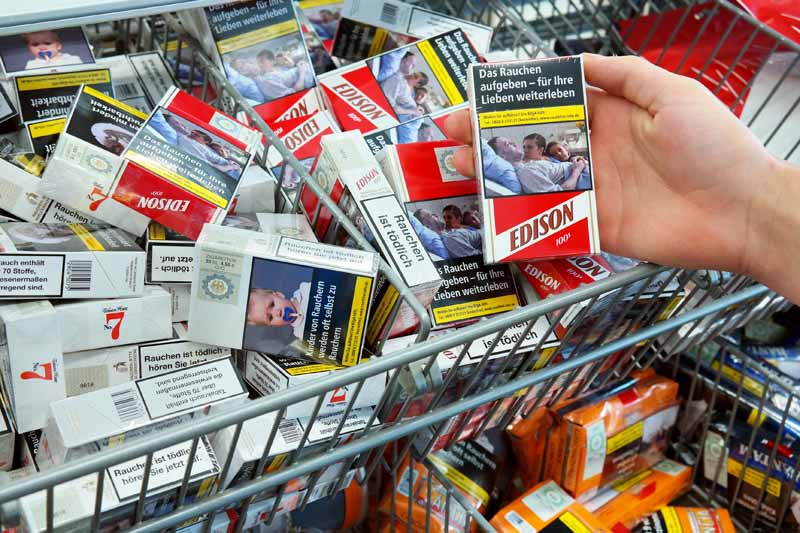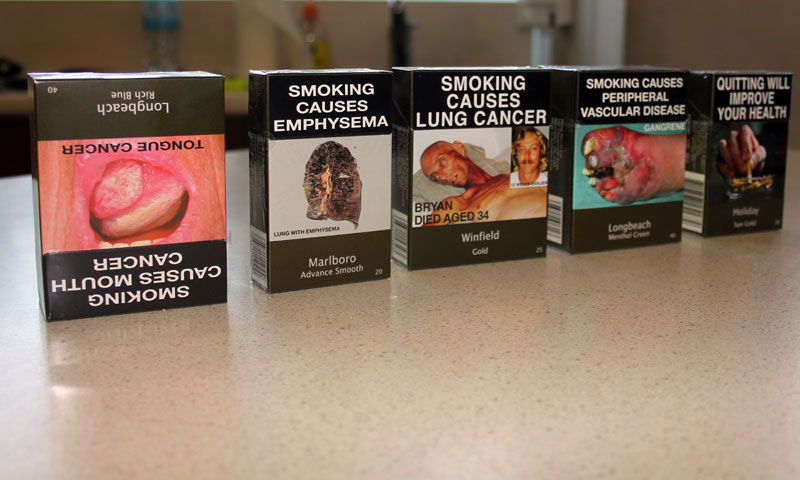Saudi Arabia’s Food and Drug Authority has said that all tobacco products will have to be sold in standardized packaging effective May 1, according to a Compelo story relayed by the TMA.
Under the law, the brand and product names will have to appear in a standard color and font.
The Authority has issued a model standardized pack to help manufacturers and importers prepare for the introduction of the new requirements.
It said the move was aimed at encouraging people to quit tobacco use by reducing the attractiveness of tobacco products and restricting the use of tobacco packs as advertising and promotional vehicles.
Category: Packaging

Saudi opts for plain packs

No such thing as free waste
Germany has come out in support of the EU Commission’s plan to make the tobacco industry cover the costs of cigarette waste, according to a Xinhua Newswire story quoting the Funke media group.
The Environment Minister Svenja Schulze was quoted as saying that those who produced disposable items, such as cigarettes, would have to take more responsibility for the waste that was generated. The tobacco industry could be involved, for example, in contributing to the costs of cleaning up beaches and parks.
In May, the Commission called on the tobacco industry to shoulder part of the clean-up costs of single-use plastic in cigarette filters.
Schulze said an EU-wide ban on unnecessary disposable plastic would be introduced before the end of this year.
It was necessary to resort to more drastic measures than have been in place in the past in order to stop the pollution of the seas and the environment.
The Commission, the EU Parliament and the Council of Ministers are due to discuss a new directive on single-use plastics.
E-liquid rules 'defy logic'
The owner of two vaping stores in Portland, Oregon, US, is asking a judge to throw out a state list of banned words and pictures on vaping liquid packages, according to a story by Aimee Green at oregonlive.com.
Paul Bates says the state’s “ridiculous” rules defy logic. For instance, he says in his lawsuit that the packages can’t use the words ‘apple or ‘strawberry’ even to describe the apple- or strawberry-infused liquids he sells for use with electronic cigarettes.
The same goes for pictures of apples or strawberries.
Employees at his Division Vapor stores in Southeast and Northeast Portland use white stickers to cover images on the labels that don’t comply with state rules, and that amounts to censorship and a violation of free speech, the suit contends.
“The new rules are just mind-boggling,” Bates reportedly told The Oregonian/OregonLive on Wednesday.
His suit lists the Oregon Health Authority, which is responsible for creating the banned list, as a defendant. Delia Hernandez, a spokeswoman for the agency, declined comment because of the pending litigation.
Hernandez, however, said the recent packaging rules were sparked by concern from the state lawmakers, who passed a law in 2015 requiring that packaging not be attractive to children.
In response, the Oregon Health Authority adopted a rule that said vaping liquid labels can’t depict images that might be appealing to minors – including those of “celebrities, athletes, mascots, fictitious characters” or “food or beverages likely to appeal to minors such as candy, desserts, soda, food or beverages with sweet flavors including fruit or alcohol”. This year, health officials added words, such as “tart, tangy, sweet, cool, fire, ice” and the names of fruits.
Bates, who buys his entire inventory from other companies that mostly don’t comply with Oregon regulations, said the health authority hadn’t forced him to follow the latest rules – yet.
The suit was filed in Multnomah County Circuit Court. Beaverton attorney Herbert Grey is representing Bates
Dysfunctional ingredients
Consumers should not use two electronic-cigarette liquids that contain erectile dysfunction drugs because they may pose health risks, according to a story at WebMD quoting CNN and citing the US Food and Drug Administration.
The two HelloCig e-liquids were said to contain tadalafil and sildenafil, the main ingredients in two of the most popular male enhancement drugs (Cialis and Viagra).
Laboratory tests had found both sildenafil and tadalafil in E-Cialis HelloCig E-Liquid and sildenafil in E-Rimonabant HelloCig E-Liquid. The e-liquids are made by HelloCig Electronic Technology of Shanghai, China.
‘These FDA-approved prescription drugs are not approved for inclusion in e-liquid products sold over the counter and are therefore being sold illegally, the FDA said.
It was said that because the products were not properly labeled, they could pose a risk to people who took nitrates for high blood pressure, diabetes, high cholesterol or heart disease.
No adverse events related to the two e-liquids had been reported to the FDA.
Packaging redesigned
Japan Tobacco Inc. is to launch in Japan redesigned packaging for 17 products under the Winston brand name.
In a note posted on its website, the company said the new-look products would be rolled out nationwide in late January.
Winston is estimated by JT to be the world’s second biggest cigarette brand by sales volume.
To convey more clearly the main features of the Winston brand, taste and flavor, 17 products would be rejuvenated with new designs, the note said.
‘This will include six products from Winston Caster White line, five products from Winston Cabin Red line, three products from Winston Inazma Menthol line, and three products from Winston Sparkling Menthol line,’ JT said.
‘The packaging has a simple, bold and modern design; the Winston logo, an icon of quality and taste satisfaction, is set against a background color corresponding to each product to visually express taste character of each Winston line.’
JT said the taste and aroma of the products would remain the same.
Each of the Winston products whose packaging is being redesigned is sold in 20-piece packs for ¥450.
The products’ tar ratings vary from 1 mg to 8 mg, while their nicotine ratings vary from 0.1 mg to 0.7 mg.
FDA issues warnings
The US Food and Drug Administration said yesterday it had issued a warning letter to Electric Lotus for selling nicotine-containing e-liquids with labeling and/or advertising that cause the liquids to resemble kid-friendly food products, such as cereal, candy, and peanut butter and jelly.
The FDA, in a note issued through its Center for Tobacco Products, said its action was part of the agency’s ongoing effort to protect kids from tobacco products.
Electric Lotus ‒ a manufacturer, distributor and retailer, based in Redlands, California ‒ was also cited for illegally selling products to a minor, for failing to list its products with FDA and for selling e-liquids without the required FDA premarket authorization.
“We’re seeing too many cases where companies are designing e-liquid products in packages that resemble children’s food items and this sort of egregious marketing can lead to accidental ingestion of potentially lethal doses of nicotine by young kids,” said FDA Commissioner Scott Gottlieb, MD.
“There’s no excuse for this sort of packaging and we’ll continue to target these products and the companies that market them.
“FDA will also continue to implement new steps to make sure children aren’t started down a path to nicotine addiction and tobacco use. Those include actions to target those who design products in ways that are clearly marketed to appeal to children. No child should be using any tobacco product. We’ll continue to hold industry accountable to ensure these products aren’t being marketed to, sold to or used by kids.”
The products outlined in the new warning letter were said to include, for example: ‘“Cereal Treats Crunch,” which resembles Cinnamon Toast Crunch cereal products; “Cereal Treats Loopz,” which looks like Froot Loops cereal; “Cereal Treats Charms,” which resembles Lucky Charms cereal products; and “Cereal Treats Krispies,” which looks like Rice Krispies Treats cereal’. Many of these products were said to have cartoon characters on their labeling and/or advertising.
The FDA has requested that the company responds within 15 working days to describe how it intends to address the agency’s concerns.
‘Failure to correct violations may result in further action such as seizure or injunction,’ the FDA note said. ‘In addition, misbranded or adulterated products imported into the United States are subject to detention and refusal of admission.’
Smoking rate rise in Canada
Health Canada is looking for outside experts to review its tobacco control strategy – a federal program that seems to have hit a wall after years of helping to drive down smoking rates, according to a story by John Paul Tasker for CBC News.
Statistics Canada data show that 16 per cent of Canadians aged 25 and older smoked tobacco in 2017, up from 13 percent in 2016.
Tasker reported that, according to a posting on Merx, a website used by Ottawa to list outstanding government tenders, Health Canada is asking contractors to prepare a report on the ‘value for money’ of the longstanding, multi-million-dollar program that has sought to reduce the number of smokers in Canada. The review would look back at how well the Federal Tobacco Control Strategy (FTCS) performed between 2001 and 2017.
But David Hammond of the University of Waterloo, one of Canada’s foremost experts on tobacco controls, said the proposed historical review should take a backseat to an urgently needed, fundamental “rethink” of the current tobacco control program.
Hammond said there had been some substantial changes in the nicotine market since the FTCS was launched, with the recent legalization of electronic cigarettes and the introduction of more sophisticated vaping devices.
The federal government, Hammond said, could go beyond the standardized tobacco-packaging regulations it was set to introduce and pursue more restrictions on where cigarettes could be sold.
And Ottawa was urged to pursue new regulatory controls over cigarettes. “Where we’ve struggled is on the product side,” said Hammond. “We’re really good at telling people not to smoke. We’re pretty good at telling them where not to smoke.
“We’re not great at actually helping them to quit.
Where we’ve really dropped the ball is in dealing with the product. We’ve done nothing to make cigarettes less harmful or addictive.”
He suggested Ottawa could do more to “incentivize people to get off smoke” by championing e-cigarettes and vaping products as safer alternatives to traditional cigarettes. “We have to get off smoke.”
UAE on track
A system of marking tobacco products that enables them to be tracked from their place of production to their point of sale will go into effect in the UAE on January 1, according to a story in the Gulf News.
The relevant rules state that, as of May 1, 2019, it will be illegal to import designated excise goods into the UAE that do not have such markings. In addition, as of August 1, 2019, it will be illegal to supply designated excise goods in the UAE that do not have such markings.
The rules were announced by Shaikh Hamdan Bin Rashid Al Maktoum, the deputy ruler of Dubai, Minister of Finance, and chairman of the Federal Tax Authority (FTA).
The rules will apply initially to cigarettes but there are plans to expand the system to take in all tobacco products.
The scheme is said to be aimed, in part, at establishing an ‘integrated, accurate and effective control framework’ that supports efforts to combat tax evasion.
Under the scheme, pack markings will be registered in the FTA’s database.
Standardized packs coming
Thailand’s Public Health Ministry yesterday approved a draft regulation requiring cigarettes to be sold in standardized packaging, according to a story in The Bangkok Post.
In addition, the regulation will require changes to be made to the compulsory graphic warnings currently included on packs.
The Public Health Minister, Dr. Piyasakol Sakolsatayadorn, said the regulation had been approved by the ministry’s national tobacco control committee, which he chairs.
Under the regulation, cigarette packs would not be allowed to include brand logos, promotional text or non-designated colors.
Piyasakol predicted that Thailand would become the 11th country but the first Asian nation to impose standardized cigarette packaging.
However, he did not say when this might occur.
Piyasakol said also that the pictures that were part of the health warnings currently included on cigarette packs would be changed.
They had been in use for five years and people might be overly familiar with them, reducing their effectiveness.
Picturesque questions
A court in Turkey has rejected a claim by a man who said that a graphic cigarette-pack warning included a picture of him in hospital with a breathing tube in his mouth, according to a Hurriyet Daily News story.
The man, who lives in the western province of Tekirdağ and who was identified only as İbrahim A., had sued five tobacco companies in 2012.
He had asked for TL302,000 in compensation for the use of the picture without his permission.
According to the plaintiff, the photo was taken in a state hospital’s intensive care unit where he had been taken after suffering breathing problems in June 2009.
But attorneys for the tobacco companies said the man in the picture was not İbrahim A. “The picture [on the cigarette packs] was dated to 2005 and picked from the European Commission’s reference list,” they said.
The court announced its verdict this week, citing an expert report and saying that whereas the man pictured on the packs was a ‘bit similar to the plaintiff’, ‘it was not him’.
In dismissing the case, the court stressed the ‘mismatch’ between the date the picture on the packs had been taken and the date İbrahim A. had been hospitalized.



